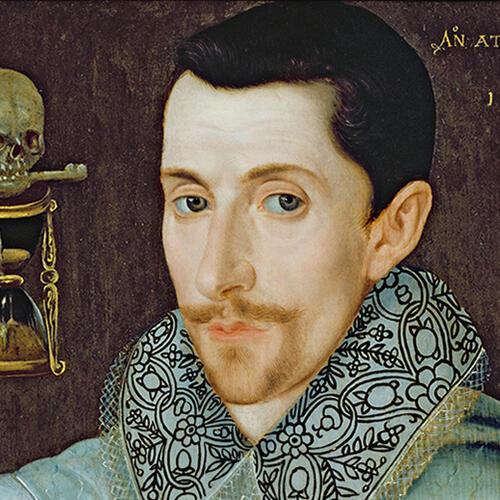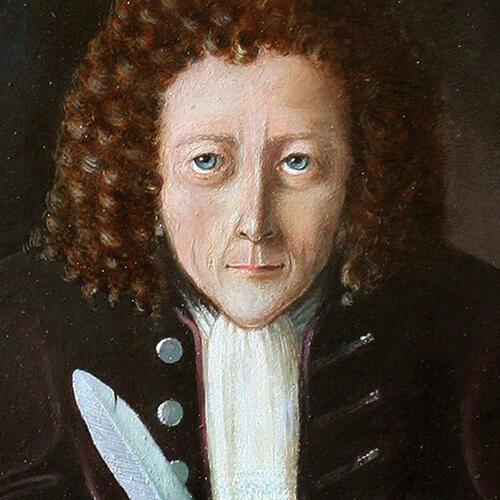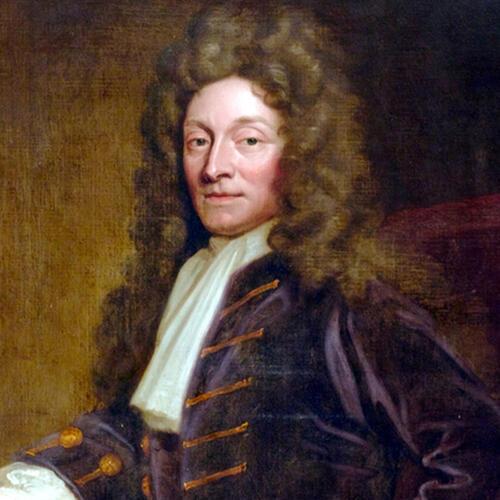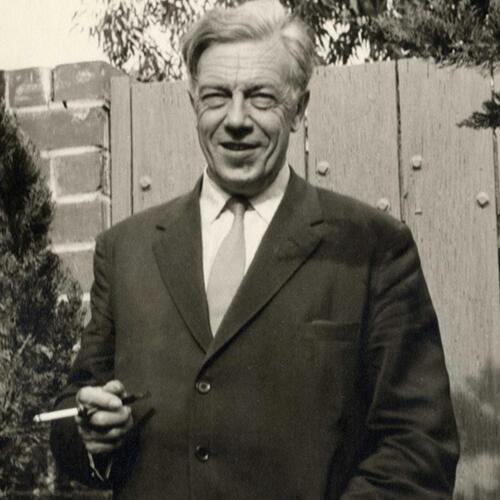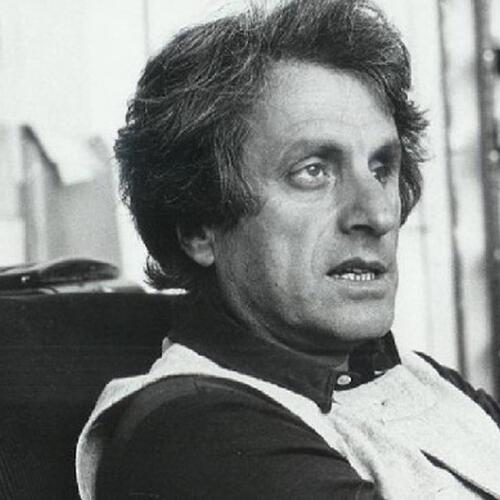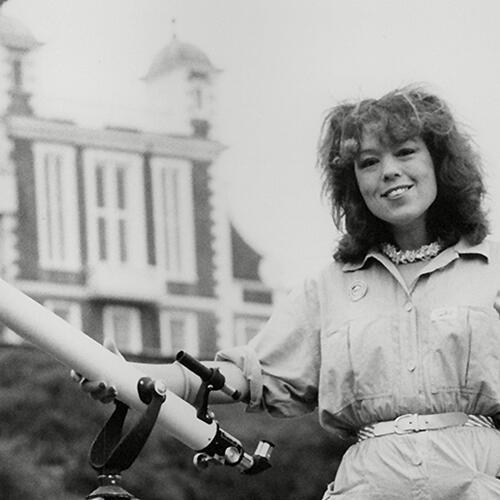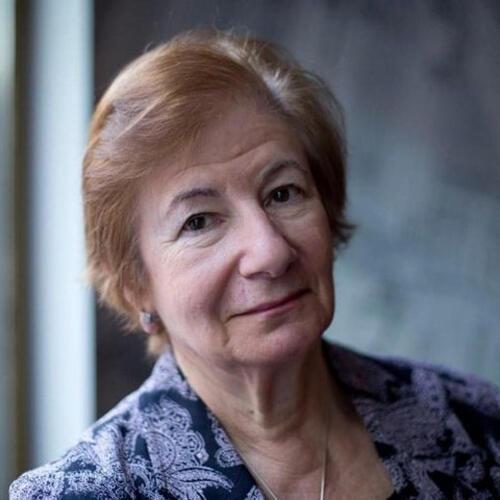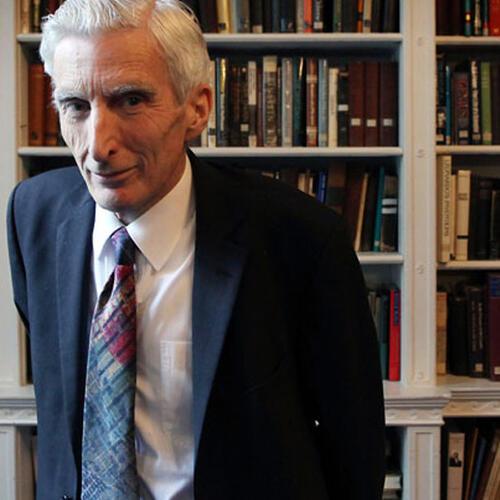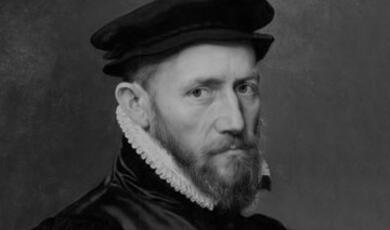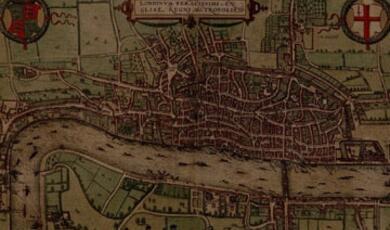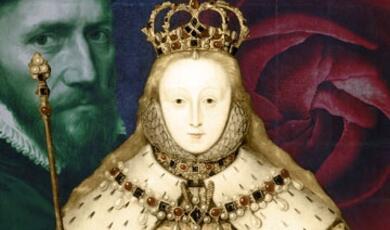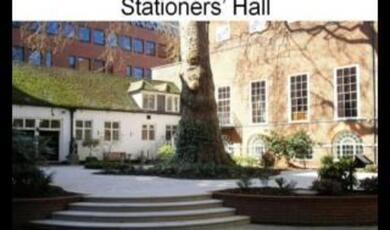Our History

Gresham College has been providing free public education across the arts and sciences since 1597 when Sir Thomas Gresham's executors founded the college to bring the ‘new learning’ to Londoners, in English rather than Latin (the language of universities for most of Europe at that time). It was the first Institute of Higher Education in London.
Sir Thomas Gresham
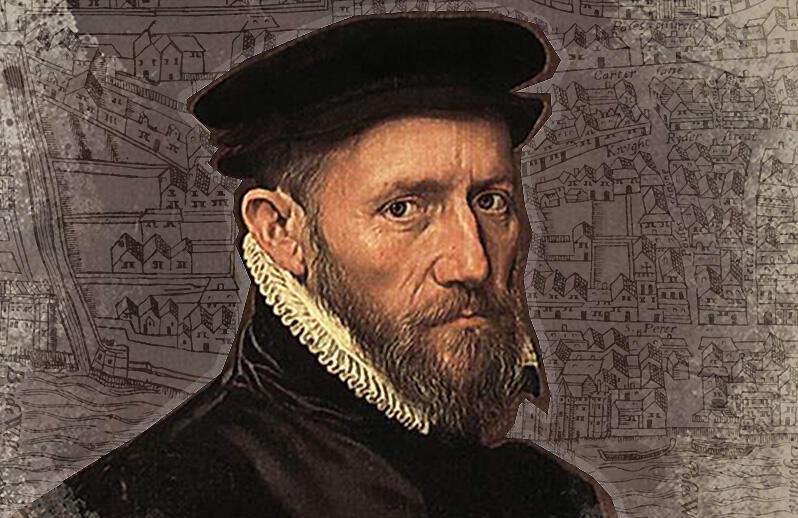
Thomas Gresham was admitted to the Mercers’ Company at the age of 24, and was initially occupied with his family's business of trade with the Low Countries.
While abroad, he also acted in various matters on behalf of King Henry VIII. However, his public life began in earnest with his appointment as Royal Agent in Antwerp by Edward VI in 1552. He retained this influential position during the reigns of Mary and Elizabeth I, deftly managing royal debt and credit and enabling the Tudors to borrow more cheaply in Antwerp than the leaders of the Netherlands themselves*.
Gresham thus became a fundamental driver of the mercantile policy of Tudor England, and one of the most influential men of the era. He cemented his financial legacy through the founding of the first Royal Exchange in 1571.
Moreover, his years spent in one of Europe’s most dynamic commercial centres fostered an appreciation of technical and scientific innovation associated with trade. His personal commitment to bringing this ‘new learning’ to the City of London was realised through the establishment of Gresham College via his Will; jointly administered by the City of London Corporation and the Worshipful Company of Mercers.
* Chartres, R., Vermont D. (1998). A Brief History of Gresham College 1597-1997
The Professors
The original seven Professorships reflected traditional subjects and also Sir Thomas Gresham’s desire to bring the new, scientific thinking of continental Europe to England. Thus the original Chairs were in Divinity, Astronomy, Geometry and Music, all nominated by the City of London Corporation; and Law, Physic and Rhetoric, nominated by the Mercers’ Company.
It is noteworthy that SirThomas included Chairs of Geometry and Astronomy in his college when no such positions existed at Oxford or Cambridge at the time.
Early Professors were, however, typically drawn from Oxford or Cambridge; they were paid £50 a year, were not allowed to be married and had to live on site.
The number of Gresham Professors remained unchanged for well over 300 years, until the mid-1980s when Professorships in Management, Ethics, Education and Commerce were introduced. However, only Commerce (later Business) survived the decade, financed by the Mercers' School Memorial Trust.
More recently, the Frank Jackson Professor of the Environment Chair was created in 2014. A year later, the IT Livery Company Professor of Information Technology Chair was created, thanks to sponsorship by the Worshipful Company of Information Technologists.
Professorships today are awarded for three-year terms. Together with our Visiting Professors and guest speakers our Professors help us provide over 130 free lectures each year.
Henry Briggs (1596/97)
Peter Turner (1620)
John Greaves (1630/31)
Ralph Button (1643)
Daniel Whistler (1648)
Laurence Rooke (1657)
Isaac Barrow (1662)
Arthur Dacres (1664)
Robert Hooke (1664/65)
Andrew Tooke (1704)
Thomas Tomlinson (1729)
George Newland (1731/32)
William Roman (1749)
Wilfred Clarke (1759)
S Kittleby (1765)
Samuel Birch (1808)
Robert Pitt Edkins (1848)
Benjamin Morgan Cowie (1854)
Karl Pearson (1890)
William Henry Wagstaff (1894)
Louis Melville Milne-Thomson (1946)
Thomas A A Broadbent (1956)
Bryan Thwaites (1969)
Clive W Kilmister (1972)
Sir Christopher Zeeman (1988)
Ian Stewart (1994)
Roger Penrose FRS (1998)
Harold Thimbleby (2001)
Robin Wilson (2004)
John D. Barrow (2008)
Raymond Flood (2012)
Chris Budd OBE (2016)
Sarah Hart (2020)
Alain Goriely (2024)
Anthony Wotton (1596)
Hugo Gray (1599)
William Dakins (1604)
George Mountayne (1606/07)
William Osbolston (1610)
Samuel Brooke (1612)
Richard Holdsworth (1629)
Thomas Horton (1641)
George Gifford (1661)
Henry Wells (1686)
Edward Lany (1691)
John Bridgen (1728)
B Halifax (1760)
H J Parker (1800)
John William Burgon (1867)
H E J Bevan (1888)
W H Thompson (1904)
Henry Martyn Sanders (1946)
Oscar Hardman (1957)
Gordon Huelin (1962)
Gordon Phillips (1967 and 1971)
Gordon Reginald Dunstan (1969)
Ulrich E Simon (1973)
Viscount Combermere (1975)
Richard Chartres (1987)
John Bowker (1992)
Richard Holloway (1997)
Gwen Griffith-Dickson (2001)
Keith Ward (2004)
Lord Harries (2008)
Lord Plant (2012)
Alister McGrath (2015)
Alec Ryrie (2018)
Ronald Hutton (2022)
Caleb Willis (1596/7)
Richard Ball (1598)
Charles Croke (1613/14)
Henry Croke (1619)
Edward Wilkinson (1627)
John Goodridge (1638)
Richard Hunt (1654)
William Croune FRS (1659)
Henry Jenkes (1670)
John King (1676)
Charles Gresham (1686)
Edward Martyn (1696)
John Ward (1720)
Jospeh Whateley (1759)
Joseph Thomas Waugh (1797)
F Newnham (1808)
Edward Owen (1817)
Thomas Francis Dallin (1875)
Charlton Lane (1863)
J M Rae (1988)
Sir Andrew Derbyshire (1990)
Peter G Moore (1992)
J E Nixon (1881)
Foster Watson (1915)
Oliver Elton (1929)
George Stuart Gordon (1930)
Arthur William Reed (1933)
Rowland Walter Jepson (1946)
Lord David Cecil (1947)
Nevill Coghill (1948)
William Empson (1953)
Richard Hughes (1954)
Bonamy Dobrée (1957)
Stephen Spender (1961)
John Wain (1963)
Cecil Day-Lewis (1963)
Patric Dickinson (1965)
Sir Robert Birley (1968)
John Morley Pick (1985 and 1987)
Jan Kott (1986)
Peter Hennessy (1994)
Lynette Hunter (1997)
Richard Sorabji (2000)
Kathleen Burk (2003)
Rodney Barker (2006)
Sir Richard Evans (2009)
Belinda Jack (2013)
Jonathan Bate (2017)
Joanna Bourke (2019)
Melissa Lane (2023)
Edward Brerewood (1596)
Thomas Williams (1613)
Edmund Gunter (1619)
Henry Gellibrand (1626)
Samuel Foster (1636)
Mungo Murray (1637)
Samuel Foster (1641)
Lawrence Rooke (1652)
Sir Christopher Wren (1657)
Walter Pope (1660)
Daniel Man (1687)
Alexander Torriano (1691)
John Machin (1713)
William Romaine (1751)
William Cockayne (1752)
Peter Sandiford (1795)
Joseph Pullen (1833)
Edmund Ledger (1875)
Samuel Arthur Saunder (1908)
Arthur Robert Hinks (1913)
William Herbert Steavenson (1946)
Sir John Carroll (1964)
Sir Martin Ryle (1968)
Roger Tayler (1969)
Sir Lord Rees of Ludlow FRS (1975)
David W Dewhirst (1976)
Michael Rowan-Robinson (1981)
Andrew Fabian (1982)
Raymond Hide (1984)
Lord Porter of Luddenham OM FRS (1990)
Heather Couper FRAS (1993)
Colin Pillinger FRS (1996)
Frank Close OBE (2000)
John D Barrow FRS (2003)
Ian Morison (2007)
Carolin Crawford (2011)
Joseph Silk (2015)
Katherine Blundell OBE (2019)
Chris Lintott (2023)
Matthew Gwinne (1596)
Peter Mounsell (1607)
Thomas Winston (1615)
Paul de Laune (1643)
Thomas Winston (1652)
Jonathan Goddard FRS (1655)
John Mapletoft (1675)
Henry Paman (1679)
Edward Stillingfleet (1689)
John Woodward (1692)
Henry Pemberton (1728)
Thomas Healde (1771)
Christopher Stanger (1789)
Henry Herbert Southey (1834)
Henry Powell (1865)
E Symes Thompson (1867)
Fleming Mant Sandwith (1907)
Robert Armstrong-Jones (1918)
George Newman (1929)
James Alison Glover (1934)
Vincent Sutherland Hodson (1937)
Hamilton Hartridge (1946)
John Leonard d'Silva (1955)
Arthur John Buller (1962)
H Harris and D V Davies (1964)
J P Quilliam (1965)
H C Stewart (1968)
David Slome (1970)
John Daniel Griffiths (1986)
Kenneth L Stuart (1988)
Francis G Cox (1992)
Susan Greenfield (1995)
Hilary Rose and Steven Rose (1999)
Keith Kendrick (2002)
Christopher Dye (2006)
William Ayliffe (2009)
Martin Elliott (2014)
Chris Whitty (2018)
Robin May (2022)
John Bull (1596/7)
Thomas Clayton (1607)
John Taverner (1610)
Richard Knight (1638)
Sir WIlliam Petty FRS (1650/51)
Thomas Baynes (1660/61)
William Perry (1681)
John Newey (1696)
Robert Shippen (1705)
Edward Shippen (1710)
John Gordon (1723/24)
Thomas Brome (1739/40)
Charles Gardner (1745)
Thomas Griffin (1763)
Theodore Aylward Sr. (1771)
R J S Stevens (1801)
Edward Taylor (1837)
Henry Wylde (1863)
Frederick Bridge (1890)
Henry Walford Davies (1924)
Peter Latham (1946)
Antony Hopkins (1963)
Brian Trowell (1971)
Iannis Xenakis (1975)
A Percival (1980)
John Dankworth (1984)
Peter Renshaw (1986)
David Owen Norris (1993)
Stephen Pratt / Joanna McGregor (1997)
Piers Hellawell (2000)
Adrian Thomas (2003)
Roger Parker (2006)
Christopher Hogwood (2010)
Christopher Page (2014)
Tom Service (2018)
Marina Frolova-Walker (2019)
Milton Mermikides (2023)
Henry Mowtlowe (1596)
Clement Corbet (1607)
Thomas Eden (1613)
Benjamin Thorneton (1640)
Joshua Crosse (1644)
Thomas Leonard (1649)
John Bond (1649/50)
Benjamin Thorneton (1660)
Richard Pearson (1667)
John Clarke (1670)
Roger Meredith (1672/73)
Robert Briggs (1686/87)
John Cumyng (1719)
William Mace (1744)
Joseph Jeffries (1767)
T Taylor (1784)
William Jocelyn Palmer (1808)
William Palmer (1836)
John Thomas Abdy (1858)
George Holmes Blakesley (1896)
William Blake Odgers (1907)
Geoffrey Walter Wrangham (1925)
William Arthian Davies (1934)
Eric Sachs (1946)
Richard O'Sullivan (1950)
Richard Jon Harvey (1962)
R F V Heuston (1965)
P R Glazebrook (1971)
Clive M Schmitthoff (1976)
Kenneth R Simmonds (1988)
David Calcutt (1992)
Simon Lee (1995)
Gerald Wakefield (1998)
Richard Susskind (2000)
Vernon Bogdanor (2004)
Baroness Deech of Cumnor DBE (2008)
Geoffrey Nice (2012)
Jo Delahunty (2016)
Leslie Thomas (2020)
Clive Stafford Smith (2024)
Jules Goddard (1985)
Jack Mahoney (1988)
Walter Eltis (1993)
Tom Cannon (1996)
Daniel Hodson (1999)
Avinash Persaud (2002)
Michael Mainelli (2005)
Kenneth Costa (2009)
Douglas McWilliams (2012)
Jagjit Chadha (2014)
Alex Edmans (2018)
Raghavendra Rau (2022)
Carolyn Roberts (2014)
Jacqueline McGlade (2018)
Myles Allen (2022)
Martyn Thomas (2015)
Richard Harvey (2018)
Victoria Baines (2022)
The Lectures
The lectures were always intended to be free and open to merchants, mariners and other men of the City who may not have had the advantage of formal education at the ‘ancient universities’. To be accessible to this audience, Professors were required from the start to provide English versions of their lectures, even if they were initially delivered in Latin.
The popularity of Gresham lectures in the 16th and 17th centuries waxed and waned, as the sponsors struggled to interpret Sir Thomas’s intentions. However, at the same time the college acquired a formidable reputation for research, with pioneers including Robert Hooke, Henry Briggs, John Greaves and Christopher Wren serving as early Professors. Indeed, The Royal Society held its first ever meeting at Gresham College in November 1660, after one of Wren's lectures, and continued to meet on site for the next fifty years.
By the beginning of the twentieth century, the popularity of the lectures had dramatically increased, fuelling an expansion of college facilities in 1911. Lectures even continued during the First World War - although had to be suspended in 1939 as London faced a more direct assault.
Gresham was linked with the new City University for a period in the 1960s, 70s and 80s with some proposing complete amalgamation. During this period, lectures moved to the University campus at Islington, and the Gresham College building was rented out. The academic programme was also extended, for a short time, to include seminars, conferences and short courses.
By the time the College moved to Barnard’s Inn its remit had reverted to a focus on free lectures in the original subjects. The programme has since expanded in other ways however, to include talks by Visiting Professors and guest speakers. Audio and video recording began in the 1980s and live streaming in 2017.
Bricks and mortar
The original College, including Professor apartments, was housed in Sir Thomas Gresham’s mansion on Bishopsgate. This impressive building, which survived the Great Fire, remained the base for the College until well into the eighteenth century when the Gresham Committee began to favour redeveloping the site for commercial letting.
The college buildings were finally redeveloped in 1768 and Gresham lectures were for some time held at the Royal Exchange and other venues. It wasn’t until 1842 that a new, purpose-built College building was erected on the corner of Gresham Street and Basinghall Street. This building was subsequently enlarged in 1911 so that it could accommodate over 400 people at each lecture.
During the period of partnership with City University, lectures moved to the campus at Islington, and subsequently to the Barbican in 1983. Following the loosening of ties with the University, lectures moved to Mercer's Hall.
The college finally relocated to a more permanent home at Barnard’s Inn Hall in 1991. The Hall, built in the first half of the fifteenth century, has had many former uses, including an Inn of Chancery, residential accommodation and the final home of the Mercers School.


 Login
Login
